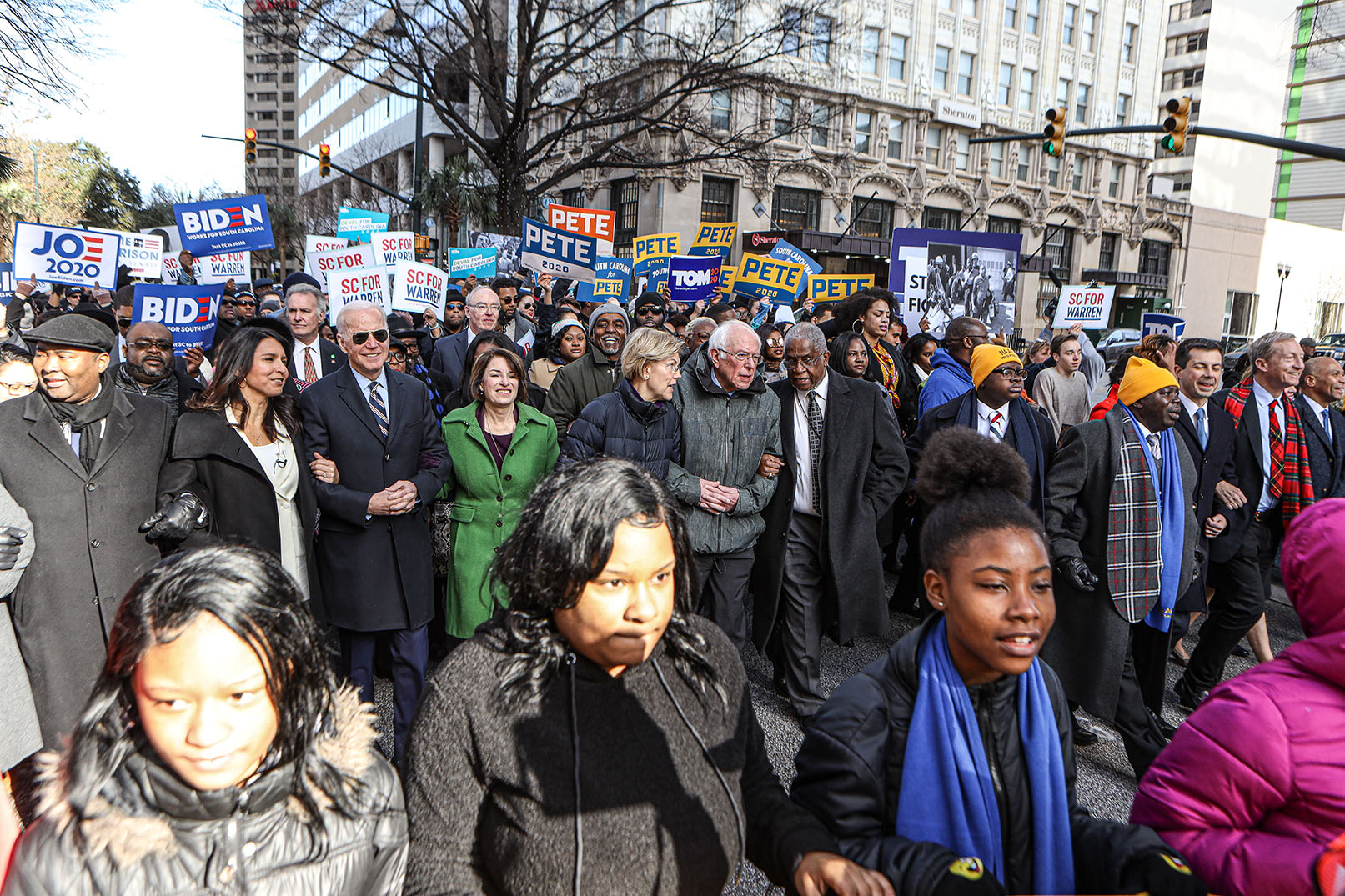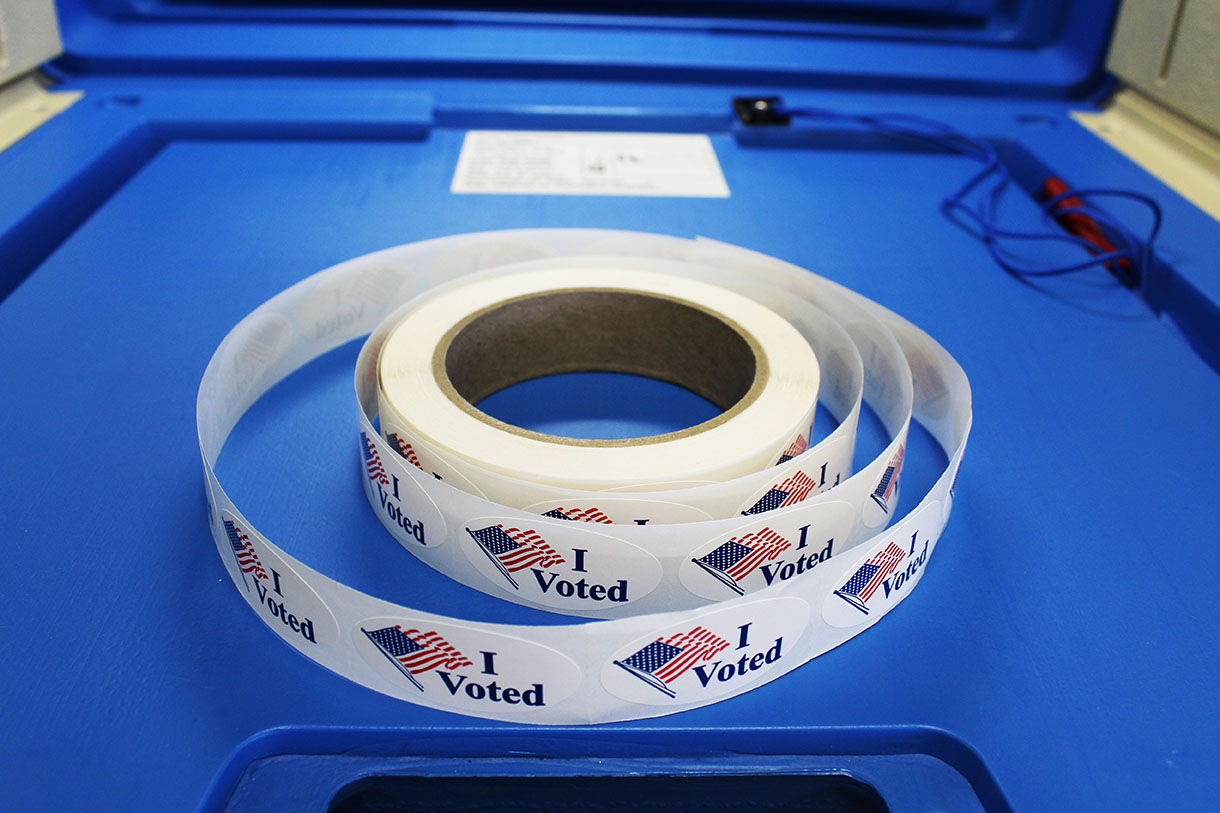
CHARLESTON, S.C. — The "First in the South" Democratic primary will not have all of its precinct voting locations open on February 29. Despite the fact that South Carolina has an open primary and any registered voter can participate, the biggest county in the state has closed one-third of its polling locations.
Greenville County closed down 52 precincts; most of those precincts will be consolidated and some will be shifted into temporary locations, but instead of 151 polling locations, Greenville County will have only 118. Across the state, 131 precinct polling places will be relocated.
Consolidating polling stations is a regular occurrence in South Carolina, and Greenville has already planned to do it for the first four elections of this year. "We did that for January 7th, for January 21st, we did it for tomorrow's election on the 29th and for a sheriff's election on March 10," County Executive Conway Belangia told the Prospect. "All of those [elections] being countywide."
This precinct consolidation for the highest-profile 2020 election in South Carolina has not been publicized, however. Instead, the new voting location for residents is updated on the South Carolina Election Commission website. "They don't tell people what's been closed. They'll tell you where to go," said Brett Bursey, executive director of the South Carolina Progressive Network. Regular registered voters are unlikely to go online to confirm their polling location before every election.
Belangia told the Prospect that the change was made because the 52 original locations were in schools, and they couldn't host voters while the school year was in session.
The Greenville County Democratic Party chair told the Progressive Network that the county kept the high number of relocated stations in place for the primary, so they wouldn't confuse people who adjusted to the changes for the first two elections this year.
Such decisions add to voter confusion in a state that already has many nuanced voter laws. The sudden changes can be undertaken because changes to the election system no longer have to be pre-approved by the U.S. Department of Justice. In the 1965 Voting Rights Act, Section 5 of the legislation prevented states with histories of voter suppression and intimidation from making any logistical changes with elections before DOJ could review them for possible discrimination or unnecessary impediment.
In 2013, the Supreme Court struck down the "pre-clearance" requirement, saying it was no longer necessary, because the discrimination that used to occur in voting laws no longer occurred. Organizers and activists in South Carolina say otherwise.
"Voters in South Carolina still, even as of this very moment, are faced with voter suppression and disenfranchisement," said Dr. Brenda C. Williams, CEO of the non-profit The Family Unit in Sumter, South Carolina. "You might ask how is that in the year 2020? How is that after the Voting Rights Act of 1965? How is that after Shelby County v. Holder's Supreme Court decision that said that racism is over, voter suppression is over, voter disenfranchisement is over?" Williams mused.
Consolidated polling stations can cause long lines and multiply the effect of any election-related hiccups, such as technology problems or short staffing. Belangia said he hasn't made any staffing increases at the polls, despite the heightened attention on South Carolina's primary.
"Our staffing is fine for what we've got going on in the locations, provided we don't have any 50 percent turnout of registered voters we ought to be good," Belangia said. He added that his county doesn't expect more than 20 percent of participation from registered voters tomorrow.
The South Carolina Progressive Network will be surveying people outside of consolidated precinct stations on Election Day to gauge how this change affects voters, in addition to rapid response available through the voter hotline and the election monitoring teams from the ACLU and the Legal Defense Fund.











